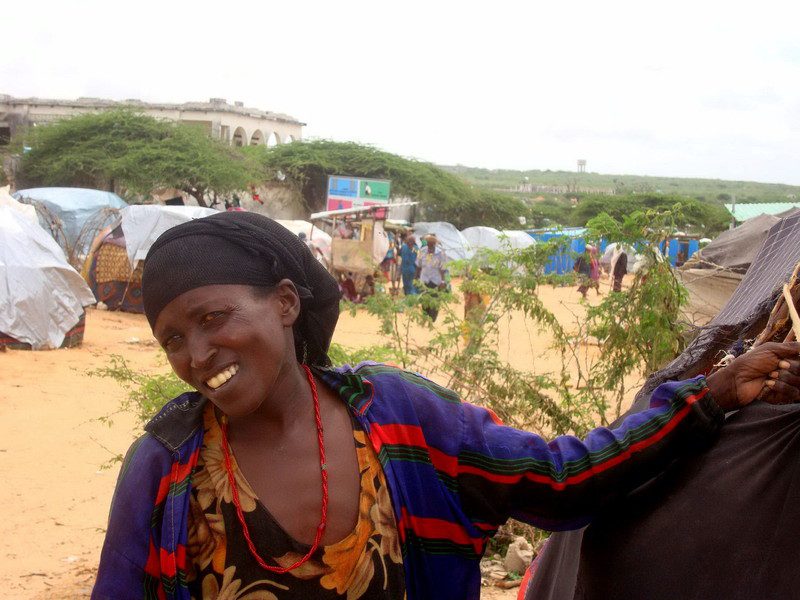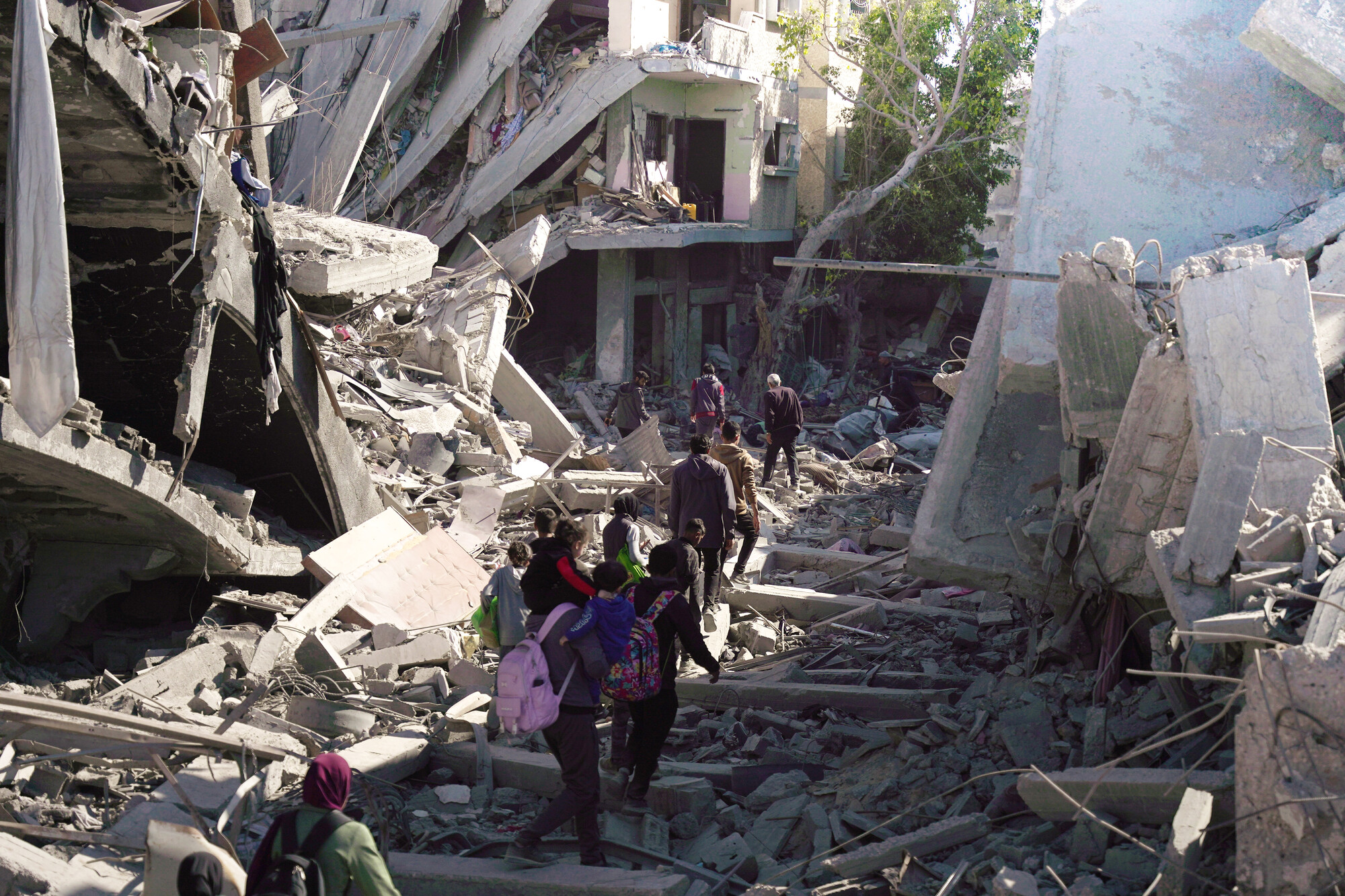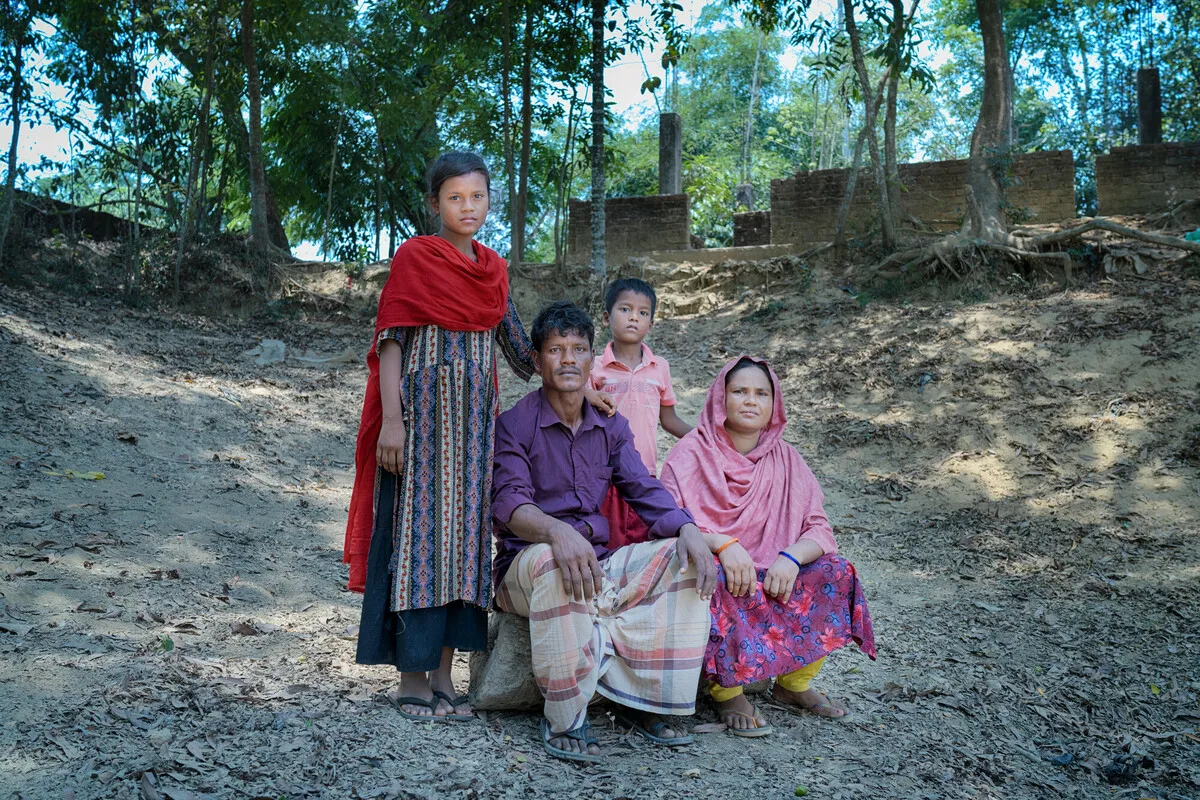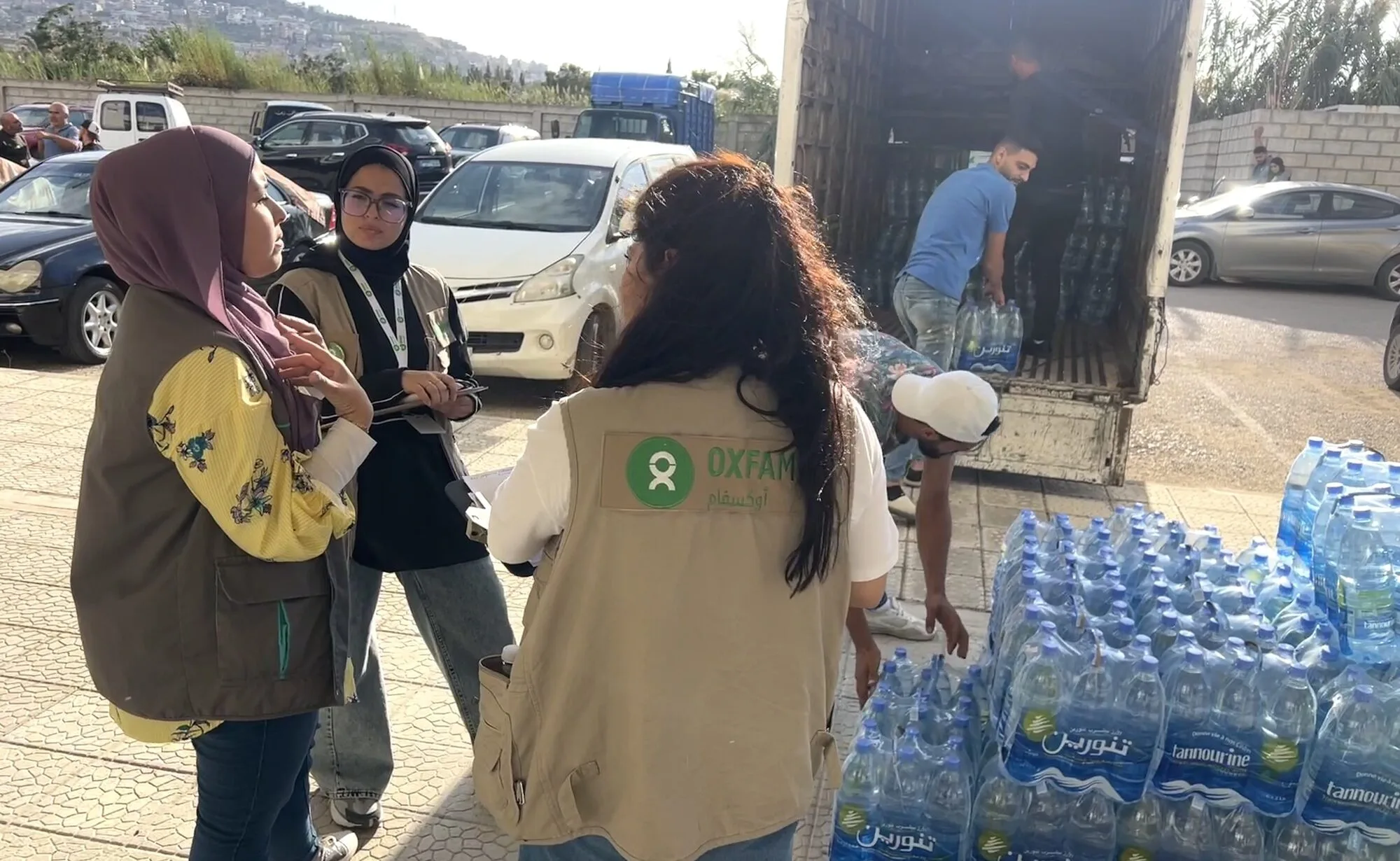Habibo is a 45-year-old mother of three. She left her remote village in the Bay Region — declared a famine region by the UN earlier this month — after she lost all her goats and cattle, which she had inherited from her husband.
“My husband died five years ago,” she explains. “He left us a few goats and cattle, but we lost them all due to the drought. We left our village with nothing, after one of my children, my second eldest, a boy, died from malnutrition. Then I decided to move to Mogadishu where some of my neighbours had already moved.”
Habibo and her children are now residents of the new Badbado camp for internally displaced people in Mogadishu. “Upon arrival in Mogadishu, we did not expect any help or support,” she says. “I have been surprised by the level of support from both local communities and the world community.”
After a food distribution in Badbado turned violent, Habibo and her family left the camp, but have since returned to live there again.
Thousands of rural Somalis have fled their homes and come to the capital, where there is more access to humanitarian assistance. However, there are now so many displaced Somalis in Mogadishu, that living conditions are very unhealthy. Meanwhile, more and more displaced Somalis continue to arrive in the city every day.
What Oxfam is doing
Oxfam supports local partner SAACID, and has been sending Community Outreach Workers to Badbaado IDP camp, informing families of their therapeutic feeding program for malnourished children. When they locate children who may be malnourished, they inform their mothers of the location of the nearest SAACID centre for diagnosis and treatment.
Read more about Oxfam’s response to the Africa Food Crisis



